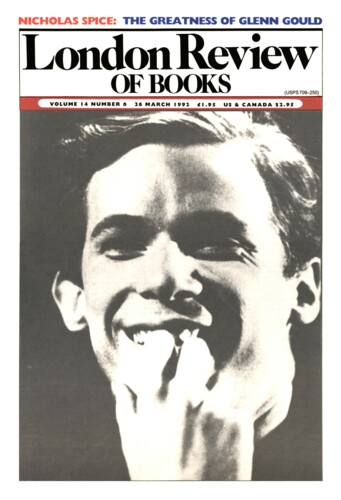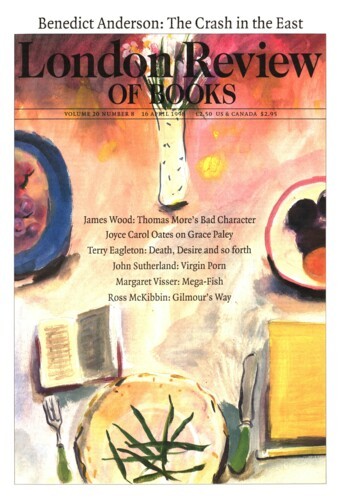Self-Slaughters
Stephen Wall, 12 March 1992
Graham Swift’s new novel, like its two predecessors, is about a man who wants to reconstruct the past. In Waterland (1983) this enterprise was conducted – plausibly enough if rather insistently – by a history teacher who saw in his imminent redundancy more than the demotion of his subject. Cutting back on history meant cutting off adults as well as children from the stories about the world that are among their deepest needs. History lies about us in our infancy, and in his case the Fenland child was the father of the pedagogic man. The hero of Out of this World (1988) was a famous photographer of wars and their aftermaths as well as the son of an armaments manufacturer, and neither by chance. As he says, ‘someone has to be a witness, someone has to see.’ Ever After, too, is driven forward by looking backward; maybe, its hero muses, it’s not posterity he’s looking for, but anteriority.’



